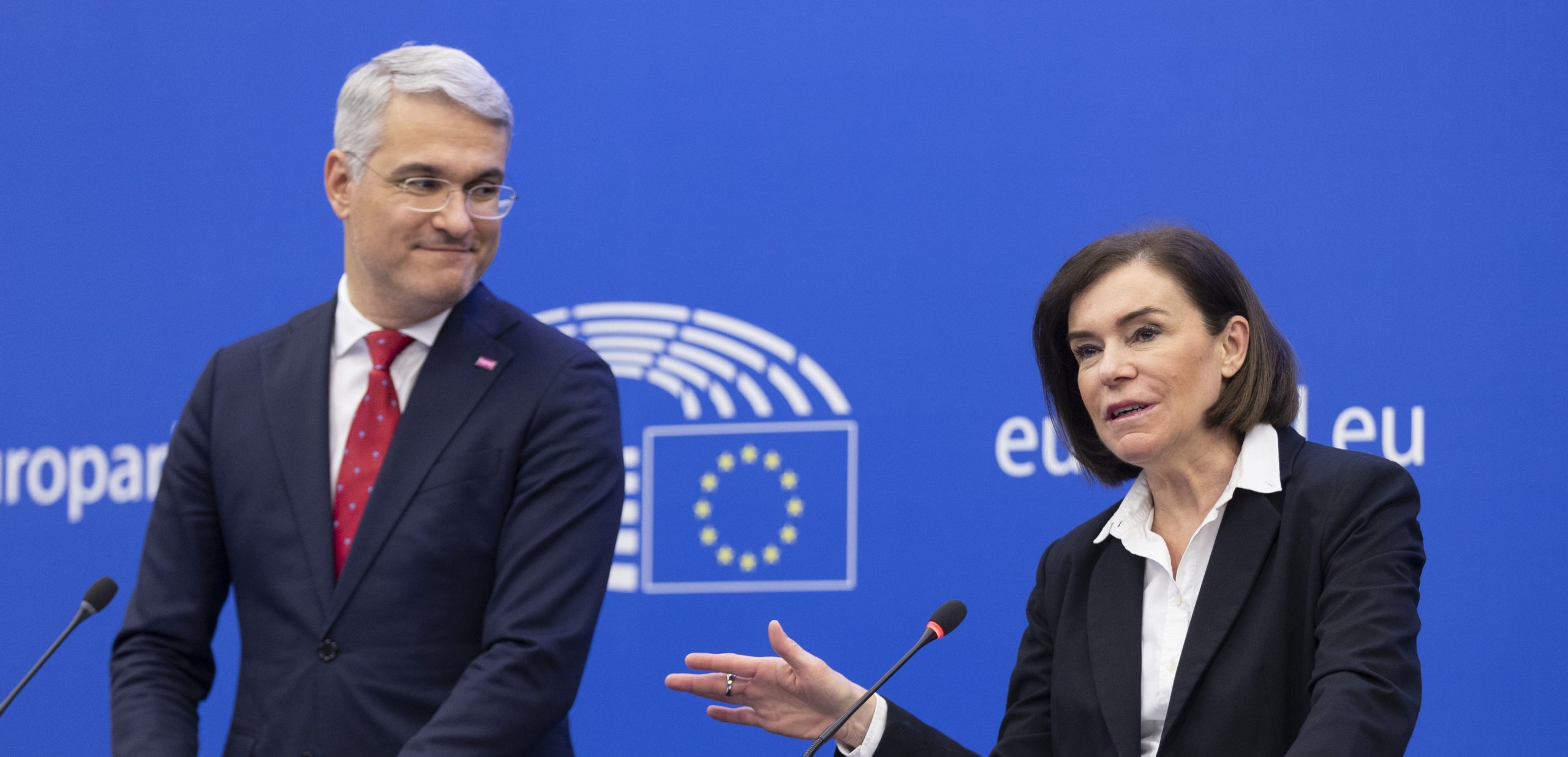
Platform workers’ rights delivered after lengthy debate
Lobbying campaigns fail to drive down standards.

Despite subsidising one of the most intense lobbying campaigns in recent memory, platform companies have failed to find a consensus for continuity of their exploitative business models in the platform economy, in a landmark victory for workers.
After the 6th round of trilogue negotiations concluded on December 13th, we finally have an interinstitutional agreement on the platform workers directive, just missing the two year anniversary of its proposal on December 9th 2021. Fortunately, the ambition shown by the Commission and Parliament to guarantee the protection of workers fundamental rights, wherever they work, has won out against the persistent objections of the Council that we have seen over the past few months. An interinstitutional agreement that helps some of the most vulnerable workers in Europe has now been secured.
Burden of proof squarely with platform companies
Central has been questions relating to the professional relationship platform workers have with their employer, and the need to ensure better protection of people in atypical working conditions. While the text has yet to be formally adopted, a reversal of the burden of proof looks to have been secured, with competent authorities, followed by trade unions, now able to flag the presumption of employment of platform workers. Should reclassification be needed in one instance, competent authorities will now be obliged to assess the status of colleagues’ in the workplace. The agreed position now means that the presumption of an employment relationship is now triggered when two of five indicators (outlined below) are met within the relationship:
- A ceiling on the amount of remuneration that workers can receive
- Monitoring of their performance, including by electronic means
- Control of the distribution or allocation of tasks
- Control of working conditions and restrictions on the choice of working hours
- Restrictions on their freedom to organise their work and rules regarding their appearance or conduct
Despite the position of the French (amongst other) governments on this aspect of the deal, and their insistence on focusing only on specific, case by case examples instead of delivering wide-ranging rights through re-classification playing a huge part in the lengthy negotiations, the rejection of the Council’s initial proposal of additional indicators and a more difficult process for workers, along with the reversal of the burden of proof, is a huge victory.
“While we still must evaluate the text in its entirety, what we have seen today is the beginning of the end of the exploitative business model that platform companies rely upon. Developers and other professionals, along with all workers, will now be able to stand up to the malpractice of platform companies, despite the millions and millions spent in their deceptive lobbying campaigns”
Algorithmic transparency and personal data protection
In a first for European law, the use of algorithmic systems in the workplace will face requirements for workers and their representatives to receive transparent information on the systems being used, prohibition against systems making important decisions such as dismissals, and a guarantee of human oversight in decisions which directly affect those undertaking work from platforms. In addition to these victories, these companies will now be obliged to assess the impact of decisions taken or supported by automated monitoring and decision-making systems on working conditions, health and safety and fundamental rights.
Stating that the text goes “beyond the limits of GDPR”, rapporteur Elisabetta Gualmini (S&D, IT) also announced that the agreement prohibits the collection of personal data by means of automated monitoring or decision-making systems. Includes in this provision is data:
- On the emotional or psychological state of platform workers
- Related to private conversations
- Allowing prediction of the actual or potential union activity
- Used to infer racial or ethnic origin, migration status, political opinions, religious beliefs state of health of a worker and biometric data
To allow enforcement, these automated systems "must be monitored by qualified personnel, who benefit from particular protection against any unfavourable treatment. Human control is also guaranteed for important decisions such as suspension of accounts".
While a standalone directive on algorithmic management in the workplace is still needed, this precedent setting text represents a milestone victory for all European workers, enhancing the rights won from that of the GDPR.
Role of trade unions
With a clear place for trade unions to enact the victories within the text, our role in campaigning for, and making a success of the directive are clear to see. Union busting measures will no longer be tolerated, with a legal avenue for intervention and implementation of hard-fought workers’ rights.
Reacting to today’s agreement, Eurocadres President Nayla Glaise stated:
“We commend the rapporteurs and negotiators for the successful conclusion of this directive. It was no easy feat, but millions of workers will reap the benefits of their persistence.
While we still must evaluate the text in its entirety, what we have seen today is the beginning of the end of the exploitative business model that platform companies rely upon. Developers and other professionals, along with all workers, will now be able to stand up to the malpractice of platform companies, despite the millions and millions spent in their deceptive lobbying campaigns.
The text, and its provisions on algorithmic management, the burden of proof on employment, and data protection will be invaluable in our efforts to secure rights through other files, and offer support for some of the most exploited workers in our societies.
If the text delivers what we have seen so far today, we will have sent a clear message to multinationals who look to ride roughshod over the rights of workers in Europe”.
At the time of writing the text is yet to be adopted by the European Council and Parliament. When this is concluded, Member States will then have two years to transpose the provisions into national legislation. In the meantime, trade unions must continue to play a role in transposition at the national level.
